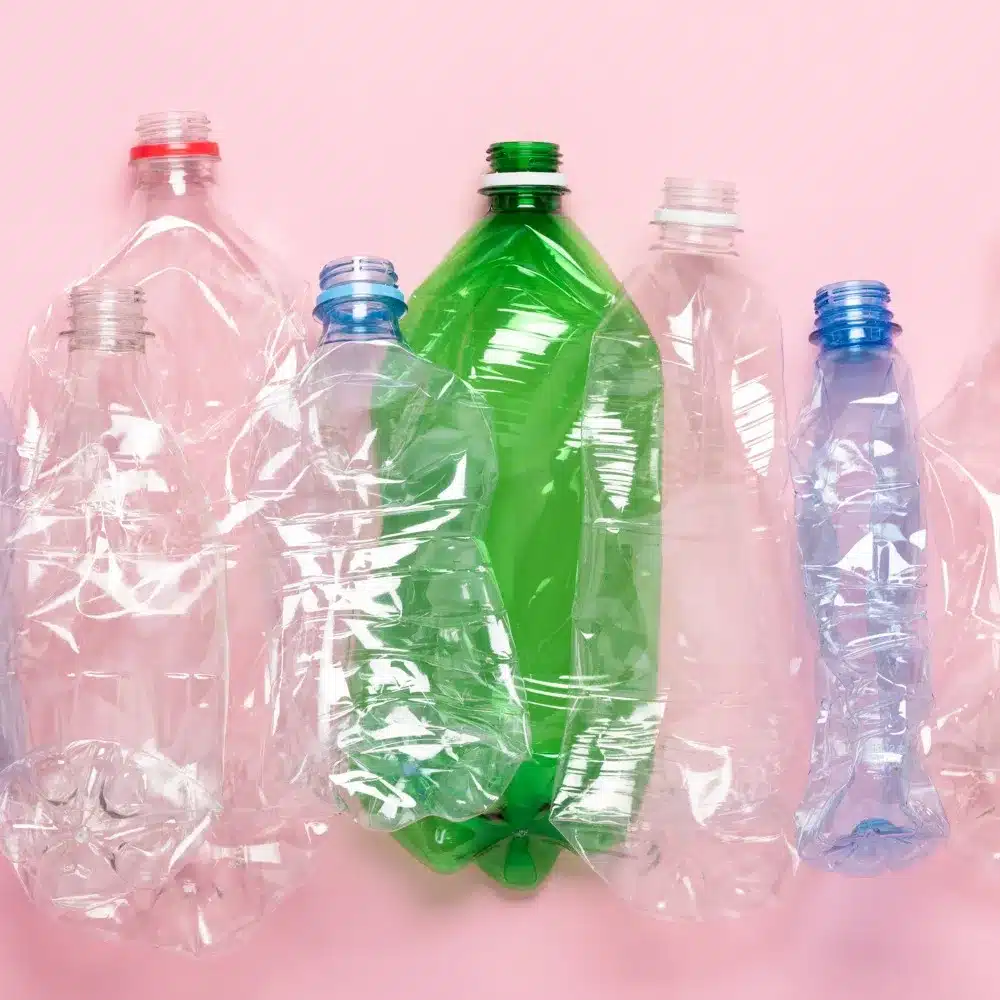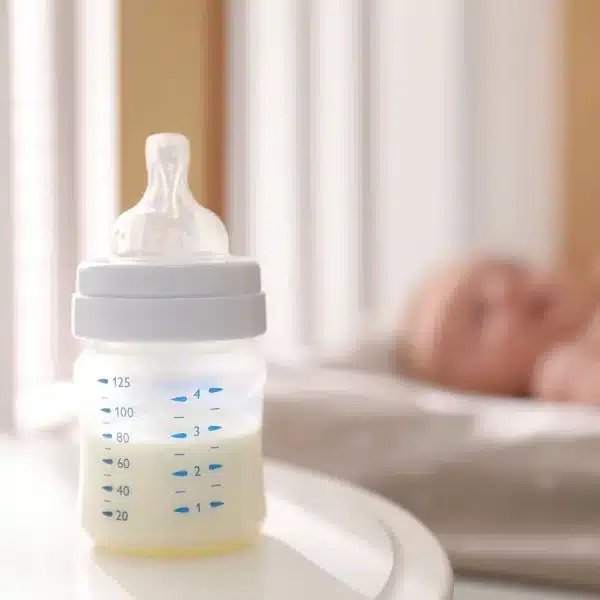What’s More Dangerous Than BPA? An interview with Dr. Chris Fasano, Stem Cell Scientist
Written by:
Maia James
04/10/2014

Updated: 09/29/2023
Looking for a different guide? Browse them all HERE.
My husband is a stem cell research scientist, and people always find this impressive. And yes, I definitely find myself bragging about it whenever everyone else is talking about their husbands’ work in private equity or whatever. But secretly I find most topics around stem cell research to be kind of boring, or at least too esoteric to enjoy in my current sleep-deprived state.
Unless of course stem cell research is focused on autism. And BPA. Turns out my husband’s colleague is studying both of these things, and so I stalked him down to have a chat. Here’s what I learned from Dr. Christopher Fasano, Director of Research & Development at the Neural Stem Cell Institute, about BPA’s possible links to autism, whether BPA substitutes are safe (nope), and how we can avoid exposing ourselves to this havoc-wreaking toxin.
MAIA JAMES: What does BPA have to do with stem cells?

CHRISTOPHER FASANO: Stem cells have the ability to turn into every cell in our body. In my lab, we take stem cells and guide them down the path of brain development so we can better understand the events that occur. The brain is a tremendously complex structure and its fetal development must occur in a precise way at the precise time. Anything that alters this can result in severe problems like miscarriage, mental retardation, to more subtle–but still serious–disorders, such as autism. In a human, the brain begins to develop at around the fourth week of pregnancy; that is super early. Because of this, it has been really difficult to understand these early stages and to investigate what happens when we come into contact with toxins, like BPA. With a whole bunch of evidence suggesting BPA and other environmental toxins can have an affect on brain development in animal models, testing this directly in a human system is so important. That is what we do in my lab. We have created a model of human brain development in the culture dish, and are investigating how toxins like BPA might mess with brain development.
MJ: Wow. So are you finding that BPA does in fact mess with brain development?
CF: Unfortunately yes. Now, I must stress this is a model of human brain development created in the lab. But, our preliminary data suggests that BPA exposure during the early periods of fetal development can affect brain development.
MJ: Ugh, so what sort of diseases might be related to BPA exposure?
CF: BPA exposure has been linked to numerous diseases including heart disease, type 2 diabetes, dementia, male impotence, and Autism Spectrum Disorders.
MJ: What other chemicals are hormone-disruptors, and can you explain in simple terms what a “hormone-disruptor” even is?
CF: Hormones travel through the body and act as chemical messengers. Like a lock and key, hormones will bind to specific receptors to bring about their function. Hormones are secreted in response to the environmental and to orchestrate developmental and reproductive changes. Hormones can have a big effect in small doses, thus they need to be tightly regulated and any small disturbance can lead to big changes. Hormonal balance plays a critical role in the reproductive process thus alterations early in development can have dire consequences. Hormone disruptors are chemicals that at certain doses, can interfere with the hormone system in mammals. HDs have very similar structures to hormones in our body, thus tricking our body into thinking there is more or less hormone present. BPA looks remarkably similar to the hormone estrogen and can severely alter the estrogen-signaling pathway, which in turn can cause some of the problems I mentioned.
MJ: Okay, so it sounds like BPA is definitely scary stuff, but it seems more and more that plastic products don’t contain it. If a baby bottle says “BPA free,” is it safe?
CF: No. In fact, studies show they may be worse than a bottle produced with BPA! If a product is going out of their way to tell you that it is “something free,” you should always question what they have done to make it that way. For example, a lot of companies have replaced BPA with BPS. BPS is virtually the same thing and in fact, studies show that BPS shows a relative inability to biodegrade, which may mean that once it is absorbed into the human body it may stay for a longer period of time. In addition, it is more likely to persist in the environment making external exposure to these toxic fumes more common place. I always tell people to make a conscious effort to avoid plastic all together if you can, at least pregnant women and young babies. And whatever you do, never microwave plastic bottles or containers as the BPA and BPS are released 55 times more rapidly when heated.
MJ: So aside from plastics, are there other high sources of BPA (or BPS) exposure that readers might not already know about?
CF: Shopping, ATM, and gas receipts have really high levels. Canned foods. Oh yeah, toilet paper…remember those receipts I mentioned? A lot of them get recycled into toilet paper. Pizza boxes, blenders, food processors. You get the idea. It’s everywhere.
MJ: Ugh again. So is the situation hopeless or can we actually affect our exposure to this stuff?
CF: I wouldn’t say it’s hopeless, but it takes vigilance. There are some easy things you can do, and some more difficult ones. Drink tap water, or use stainless steel or glass water bottles. Avoid using plastic utensils. Stay away from microwaveable meals that come out plastic containers and stick to freshly prepared foods. Do not store your food in plastic Tupperware. Instead of using a plastic coffee maker or getting some from you local corner coffee shop, use a French press or an all glass coffee maker. And one of the hardest…avoid all canned foods. For your children, avoid as many plastic toys as possible, and if you must use plastics avoid the ones with the numbers 3, 6, and 7, on the product.
Even if you follow all of these, BPA will inevitably show up in your body; traces of it are found in random places, like eggs and milk. However, following these suggestions will definitely help.
MJ: Thanks so much for sharing this grim information with us! Seriously, though, this is super important. Where can we learn more and how can we support your work?
CF: The Environmental Protection Agency has a lot of information on BPA and other toxins and how it can affect your health. Of course sites like Gimme the Good Stuff are a great resource as well. For more information on my current research regarding BPA and brain disease, feel free to contact me at chrisfasano@neuralsci.org.
Stay sane,


Maia, Founder & CEO
Note: This article contains affiliate links or sponsored content, which means that if you make a purchase, we may earn a commission. We only recommend products that meet our strict standards for non-toxicity and that we use (or want to use!) ourselves. Thank you so much for supporting the brands that make Good Stuff!
Enjoying this guide?
Join 60K families who rely on our free guides on everything from milk to mattresses! Sign up to get $5 off your first order, access to our ultimate Clean Products Cheat Sheet, and ongoing exclusive access to coupon codes and promotions. Our weekly newsletter is filled with well researched tips and tricks to live a toxin-free lifestyle.
Related Posts
Start Here: 5 Crucial Steps to Decrease Toxins in Your Home
The Best Non Toxic Baby Bottles
What Is the Best Non-Toxic Cutting Board?
How To Avoid Drinking Toxic Tea
-
So your husband deals with fetal stem cells?





Leave a Reply
You must be logged in to post a comment.